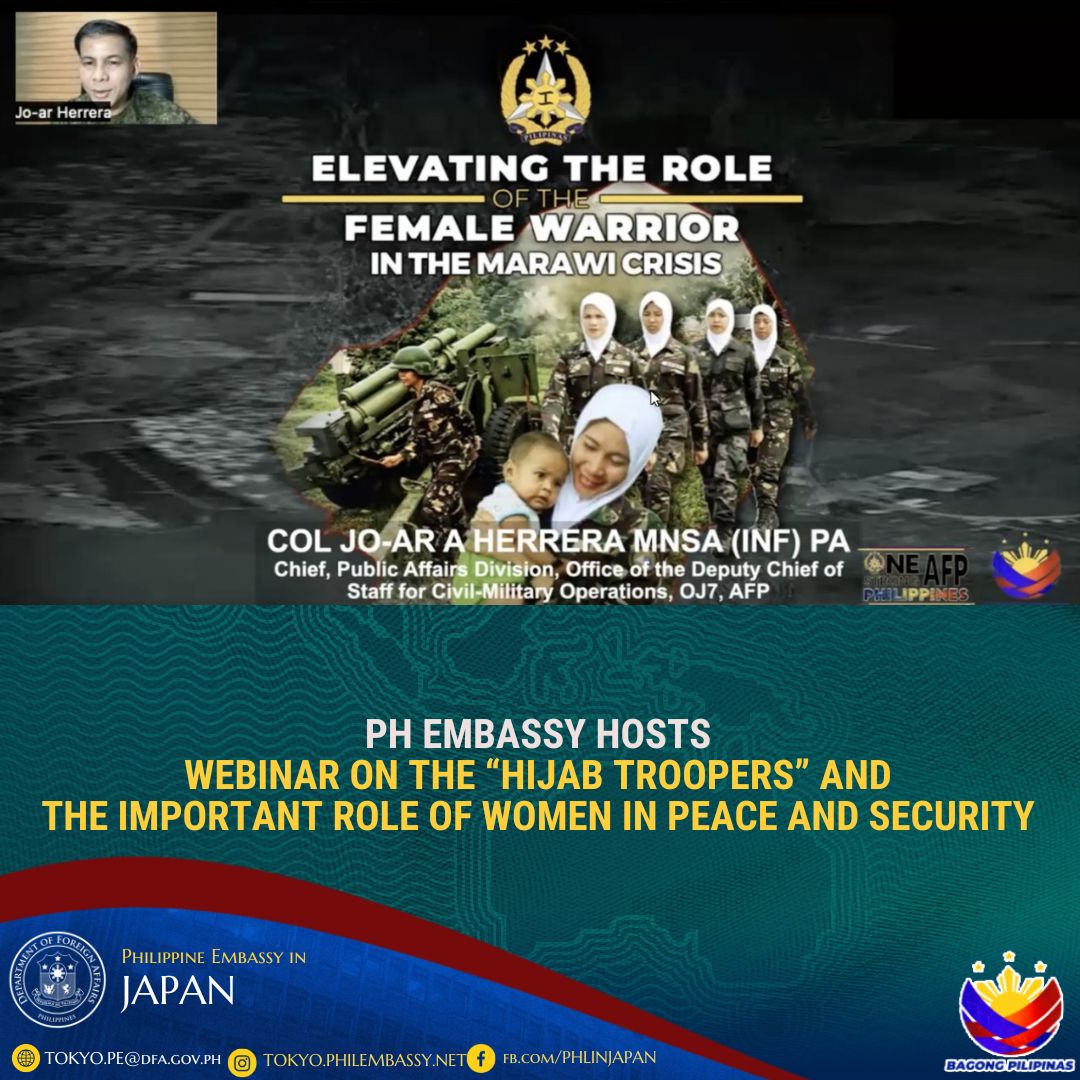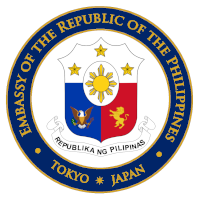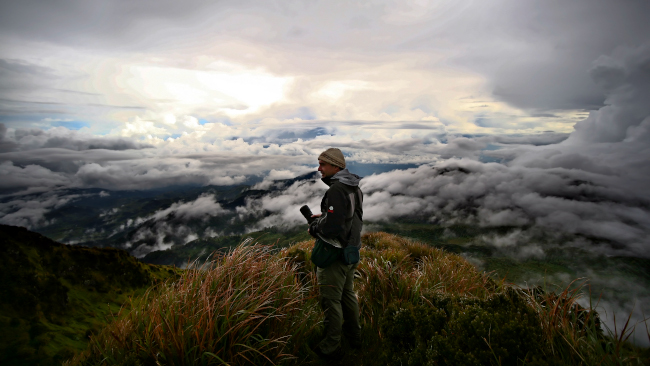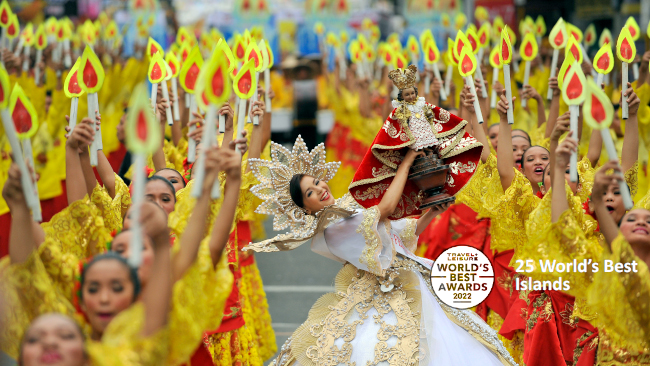Philippine Embassy Hosts Webinar on the “Hijab Troopers” and The Important Role of Women in Peace and Security

Colonel Jo-ar Herrera shares the challenges and successes of the deployment of the “Hijab Troopers” who were instrumental in the government’s efforts to resolve the Marawi Crisis in 2017. Colonel Herrera is the featured speaker in the webinar hosted by the Philippine Embassy in Japan on 19 June 2024, in line with the Philippines’ commitment to advance the Women, Peace, and Security agenda.
TOKYO, 19 June 2024 – The Philippine Embassy in Japan, through its Political Section and the Office of the Defense and Armed Forces Attaché, hosted a webinar today focusing on the crucial role of the Hijab Troopers in the peace and security efforts during the Marawi crisis in 2017. This event, which is a part of the Embassy’s Gender and Development Program and a manifestation of the Philippines’ steadfast commitment to the Women, Peace, and Security (WPS) agenda, highlighted the contributions of women in military operations and peacebuilding.
The webinar featured a comprehensive presentation by Colonel Jo-ar Herrera, Chief of the Public Affairs Division and Deputy Chief of Staff for Civil-Military Operations of the Armed Forces of the Philippines, on the formation, mission, and impact of the Hijab Troopers during the battle for Marawi City in 2017. He detailed the significant influence that these female soldiers and police personnel have had on both the military and local communities.
The Marawi crisis, which began in May 2017, was a five-month-long conflict between Philippine government forces and militants affiliated with the Islamic State (ISIS). It started when a combined force of ISIS-linked groups attempted to seize control of Marawi City in Mindanao. The conflict caused the displacement of nearly 400,000 residents and led to the deaths of more than 1,000 people, including civilians, soldiers, and militants. It ended in October 2017, when Philippine forces liberated the city.
The Embassy’s Deputy Chief of Mission Charmaine Serna-Chua welcomed the participants on behalf of Philippine Ambassador to Japan Mylene J. Garcia-Albano. She emphasized the Philippines’ commitment to advancing the WPS agenda, nearly twenty-five years after the United Nations Security Council adopted the landmark Resolution 1325, which addresses the disproportionate impact of armed conflict on women and girls, and calls for their increased participation in conflict prevention, resolution, and peacebuilding efforts.
“We bring with us a wealth of experience and a strong commitment to the WPS (Women, Peace, and Security) agenda. Our advocacy at the UN level aims to strengthen the global discourse on WPS and ensure that women’s roles in peace processes are recognized and reinforced worldwide,” the Ambassador’s message read.
During the Q&A session, Colonel Herrera expounded on various topics including the level of interest in the WPS agenda within the Philippine military and the broader implications of the Hijab Troopers’ experience in integrating gender perspectives into military operations. Questions also touched on the institutionalization of the Hijab Troopers and how this model of civil-military engagement could be replicated in other regions or countries.
Speaking from his experience as the G7/CMO officer of the 1st Infantry Division and Spokesperson of Joint Task Force Marawi, Colonel Herrera emphasized, “The positive impact of the Hijab Troopers could not be overstated, especially in fostering trust between the armed forces and the affected communities. By demonstrating respect for local traditions and values, the Hijab Troopers helped dismantle stereotypes and prejudices that often exist between military forces and local communities, humanize the military presence, and encourage more open and honest interactions.”
“The Philippines firmly believes that integrating gender perspectives is crucial to finding lasting solutions to conflict, and to the effective recovery and rehabilitation of post-conflict communities,” said Philippine Ambassador to Japan Mylene Garcia-Albano. “Genuine security encompasses not only the absence of conflict but also the active participation and empowerment of vulnerable groups, especially women and girls, whose voices and experiences should shape our strategies for achieving and maintaining peace.”
The recording of the webinar may be viewed here.































